ADVOCACY
Our Advocacy Efforts Worked!
 In 2019, the Hydrocephalus Association continued to advocate for hydrocephalus patients and caregivers, ensuring their voices and priorities were heard in Congress. With the help of our patient volunteers and caregivers, we were able to work with Congress to ensure several major pieces of legislation benefited our community.
In 2019, the Hydrocephalus Association continued to advocate for hydrocephalus patients and caregivers, ensuring their voices and priorities were heard in Congress. With the help of our patient volunteers and caregivers, we were able to work with Congress to ensure several major pieces of legislation benefited our community.
Key Wins for the Hydrocephalus Community:
Patient-Centered Outcomes Research Institute (PCORI) Funding
PCORI is an independent organization that provides research grants to study different medications and treatments. It was created as part of the Affordable Care Act (or “Obamacare”) and receives funding from the federal government. Those funds were due to run out this year. In an end-of-year budget agreement, a coalition of patient and caregiver organizations, including HA, succeeded in extending that funding for another ten years.
PCORI research helps patients and their caregivers have the information they need to make informed decisions around their care and know they are getting the best recommendations based on sound studies. Under one grant, for example, Dr. William Whitehead at Texas Children’s Hospital is leading the Hydrocephalus Clinical Research Network in a multisite clinical trial that compares shunt implant procedures to determine the most effective entry site for placing a shunt. This information will be useful to patients and caregivers as they consider treatment options with their doctor. This Congressional action opens up the possibility for more hydrocephalus-related grants in the future.
Medical Device Excise Tax
The Affordable Care Act included a 2.3% medical device excise tax to help fund the insurance marketplace. HA joined Research!America and other coalitions in opposing the tax, due to its potential impact on devices like shunts. Fortunately, the same end-of-year budget agreement that fixed PCORI also repealed this tax.
Congressionally Directed Medical Research Program (CDMRP)
The CDMRP, under the Department of Defense, funds research on a variety of health conditions, including hydrocephalus, that impact members of the military. These funds must be approved every year. In the past, some legislators have proposed eliminating or severely restricting the program. HA joined a coalition of groups focused on preserving funding for this program–and we succeeded! A bill to fund CDMRP passed in the last week of the Congressional session.
Caucus Briefing Educates Members of Congress About Hydrocephalus
 On Oct. 17, 2019, the Hydrocephalus Association hosted a Hydrocephalus Caucus Briefing in Washington, D.C., in partnership with the Pediatric Hydrocephalus Foundation (PHF). More than 60 Congressional offices participated, along with members of the hydrocephalus patient community. The briefing explored the impact hydrocephalus has on patients, caregivers, and members of the military, and how members of Congress can support families impacted by this condition. Congressmen Christopher H. Smith and Lloyd Doggett, Co-Chairs of the Congressional Pediatric and Adult Hydrocephalus Caucus, supported the briefing.
On Oct. 17, 2019, the Hydrocephalus Association hosted a Hydrocephalus Caucus Briefing in Washington, D.C., in partnership with the Pediatric Hydrocephalus Foundation (PHF). More than 60 Congressional offices participated, along with members of the hydrocephalus patient community. The briefing explored the impact hydrocephalus has on patients, caregivers, and members of the military, and how members of Congress can support families impacted by this condition. Congressmen Christopher H. Smith and Lloyd Doggett, Co-Chairs of the Congressional Pediatric and Adult Hydrocephalus Caucus, supported the briefing.
Michael Illions, PHF Vice President, shared the story of his 14-year-old son Cole, who is living with hydrocephalus and has endured 14 brain surgeries to manage his condition. Amanda Garzon, HA’s National Director of Program Services and Communications, who is also a parent to a teen living with hydrocephalus and a former Navy spouse, shared the story of James Spence, a retired Army veteran who developed hydrocephalus after a traumatic brain injury while serving in the military.
 Dr. Mark Luciano, neurosurgeon and Director of the Cerebral Fluid Center at John Hopkins Medicine, discussed the challenges and opportunities faced by researchers to find treatment and alternatives and cures. Diana Gray, HA’s President and CEO, urged Members of Congress to support increased research funding from federal agencies, such as the National Institutes of Health, the Department of Defense, and the Patient-Centered Outcomes Research Institute. She also stressed the importance of expanding access to affordable healthcare for patients
Dr. Mark Luciano, neurosurgeon and Director of the Cerebral Fluid Center at John Hopkins Medicine, discussed the challenges and opportunities faced by researchers to find treatment and alternatives and cures. Diana Gray, HA’s President and CEO, urged Members of Congress to support increased research funding from federal agencies, such as the National Institutes of Health, the Department of Defense, and the Patient-Centered Outcomes Research Institute. She also stressed the importance of expanding access to affordable healthcare for patients
“Of utmost importance is the ability of our patient population to have access to affordable healthcare that will provide the care and services that our patients need to stay in good health through their entire lifespan, including individuals with pre-existing conditions. This not only impacts the quality of life for individuals with hydrocephalus, including the parents of babies born with the condition, it also helps reduce healthcare costs for our entire system,” Diana said.
Six New Members Join the Congressional Hydrocephalus Caucus
Each year, the Hydrocephalus Association works to add members of Congress to the bipartisan Congressional Pediatric and Adult Hydrocephalus Caucus. The Congressional Pediatric and Adult Hydrocephalus Caucus serves to inform the congressional community about the needs of those living with hydrocephalus, their families and caregivers, including funding for research from the National Institutes of Health and Department of Defense, health policy including the access to affordable healthcare, Medicare and Medicaid, special education and rehabilitation services. The Caucus is chaired by Congressman Christopher H. Smith (R-NJ) and Congressman Lloyd Doggett (D-TX).
In 2019, six new lawmakers joined the Caucus, including:
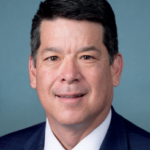
Congressman TJ Cox
Representing the 21st District of California
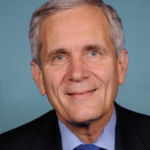
Congressman Lloyd Doggett, Co-Chair
Representing the 35th District of Texas
Scott DesJarlais
Representing the 4th District of Tennessee

Congresswoman Carolyn B. Maloney
Representing the 12th District of New York

Congressman Chris Pappas
Representing the 1st District of New Hampshire

Congressman Jefferson Van Drew
Representing the 2nd District of New Jersey


